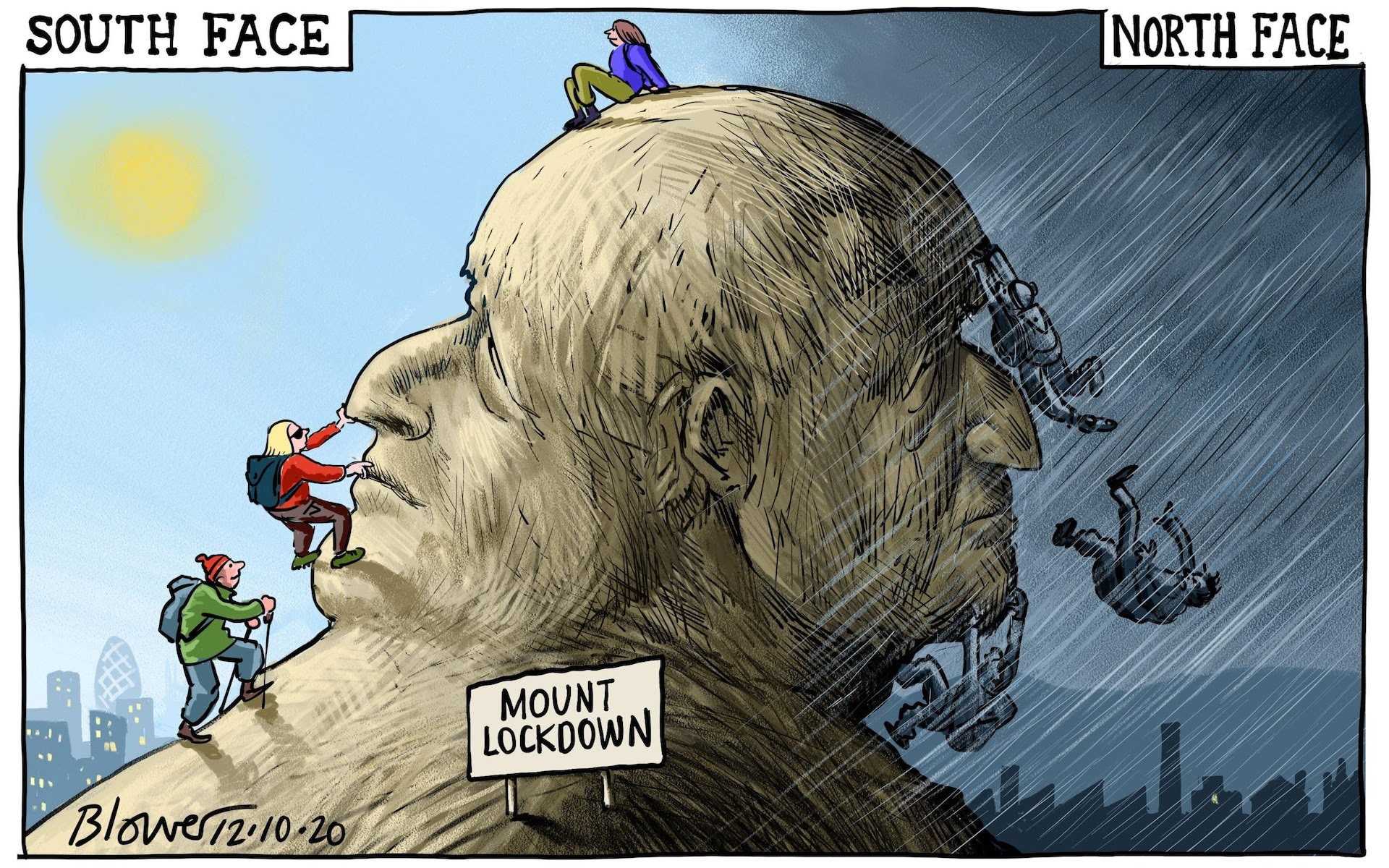Today will mark a substantial shift in how England handles the coronavirus, as the Government braces the country to cope with what could be a rather grim winter.
– Time for tiers –
Having briefed the Cabinet last night, Boris Johnson will chair a Cobra meeting this morning to finally sign off the new three-tiered system for local lockdowns (officially known as the Local Covid Alert Levels). He will address the Commons this afternoon, followed by a press conference this evening alongside Prof Chris Whitty, the Chief Medical Officer, and Rishi Sunak, the Chancellor.
While the new system of “medium”, “high” and “very high” tiers will be announced, full details of what each entails may remain frustratingly limited. Tier 1, or “medium”, is expected to mean existing national restrictions, including the rule of six and 10pm curfew. Tier 2, or “high”, is likely to be relatively straightforward; households will not be allowed to mix indoors or at hospitality venues.
Tier 3, or “very high”, is where it gets complicated. The Westminster Government is in negotiations with local governments over what exactly Tier 3 will mean for each of the regions expected to be placed in it. Following much criticism in recent weeks, ministers have tried hard to involve local governments, but the result has been fraught negotiations that have delayed the launch of the system.
– Not quite so standard –
The overall result is that, despite one of the original aims of the tier system being to introduce a semblance of standardisation, Tier 3 restrictions will be highly tailored to each region.
The Liverpool City Region is expected to be the first area to enter Tier 3. Negotiations were ongoing last night, with the exact details uncertain. Pubs and bars are almost certain to close, as are casinos, gyms and bookmakers. There may be a reprieve for restaurants and, possibly, pubs that stick to sit-down meals. Restrictions on household mixing are expected, but the Government may hold off on measures preventing people from moving around.
As importantly, although less visible to the public, the test and trace system in Tier 3 areas will be devolved to local governments and local officials will get stronger enforcement powers. The restrictions in each area will be reviewed on a monthly basis and could go on for as long as six months.
Manchester and Newcastle, two other areas expected to face the toughest restrictions, are further away from a deal and so are unlikely to enter Tier 3 right away.
– Where’s the money? –
There has been some grumbling from MPs about the enforcement of restrictions at all. (As Front Bench wrote last week, this seems to stem from a misunderstanding of the infection statistics. Household transmission is always likely to be statistically high for the simple reason that infectious people tend to infect their entire home. What matters is if the single original infection in that household originated in a pub or restaurant.)
However, the main concern expressed by mayors and council leaders is over the lack of generosity from the Treasury. While Sunak has announced a second furlough scheme for local lockdowns, it only covers two-thirds of wages and is restricted to businesses that are forcibly shut down by law, leaving those closed by a lack of custom exposed.
It does appear, from the ongoing negotiations, that each Tier 3 region may get some kind of tailored financial package, but quite what it will entail is unclear. Local leaders in Manchester were threatening to pursue legal action against the Government unless it increased financial support.
– Oh so predictable –
The context for all of this is that, following a summer in which the Government apparently decided that Civil Service reform and avoiding a Brexit extension were more important projects, the coronavirus has rebounded in pretty much the exact way that scientists had warned it would.
Yesterday, Jonathan Van-Tam, the Deputy Chief Medical Officer, warned that England was at a “tipping point” similar to March, but that “we can prevent history repeating itself”. That we have arrived at this point so unprepared suggests that it already has. |
